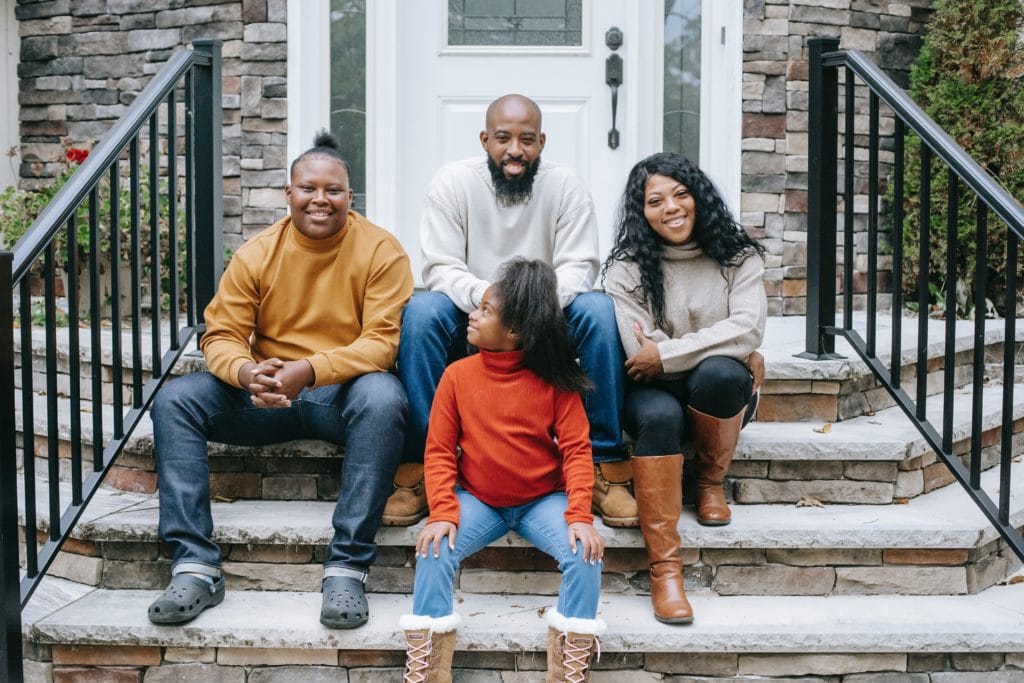Have you ever experienced hostile dependency in a relationship?
Would you know if you had?
Hostile behavior might seem like a strange way to show someone you love them, but it’s actually super common.
This article will explain:
- What hostile dependency is
- What causes hostile dependency
- And what to do if you’re in a hostile-dependent relationship.
What Does Hostile Dependency Mean?
A hostile-dependent relationship is one in which either one or both parties regularly engage in hostile or aggressive behavior toward one another.
However, both parties continue to remain in the relationship due to the dependence of one on the other, or mutual dependence on one another.
This dynamic of both aggression and interdependence causes hostile dependency in a relationship.
If you’re the parent of a teenager, you’ll probably be familiar with hostile dependency.
It occurs during the phase when they become sullen and grumpy, and you start to wonder what you did to make them hate you.
(And if you don’t have teenage children, you may remember this dynamic from your own teenage years.)
Most people grow out of their hostile-dependent relationships with their parents once they reach adulthood.

However, some people continue to recreate hostile-dependent relationships as adults — with friends, coworkers, family, and, of course, in romantic relationships.
If you’ve ever been in a relationship with a hostile-dependent person, then the following may be familiar to you.
A hostile-dependent person relies on others for problem-solving and even for fulfilling their physical and emotional needs.
They fail to take responsibility for their life and blame those around them for their inability to hold down a job.
Their behavior is aggressive, or even abusive toward those they love, and they take their frustration out on you.
No matter how much you try to help them, nothing seems to be enough. If anything, your efforts make them even more hostile to you.
If you think you or your partner may be hostile-dependent, read on to find out what to do.
What Causes Hostile Dependency?
An adult may become hostile-dependent if they lose their independence for some reason and become dependent on others to fulfill their needs.
For example, it is common in people recovering from illness who are unable to work or take care of themselves, or people who lose their jobs and become economically dependent.
The loss of independence can often cause people to feel frustrated, and this manifests in aggressive behavior toward those closest to them — particularly the ones they love.
The phenomenon is similar in teenagers.
During the early teenage years, children start to crave greater independence from their families.
However, they feel frustrated since they still depend on them for survival.
This leads to the stereotypical grumpy behavior that we often associate with teens, which is actually hostile dependency.
Hostile Dependency Symptoms
If you suspect your child is becoming hostile-dependent, or you think you could be in a hostile-dependent relationship, here are some signs to look out for.
Passive Aggression
Passive aggression is one of the most common symptoms of hostile dependent relationships, and it can come in many different forms.
Some passive-aggressive behaviors include:
- Sulking
- Ignoring you
- Deliberately procrastinating over tasks
- Doing things in a deliberately sloppy way
- Not answering your questions
- Withdrawal and isolation
- Withholding information to mislead you
- Backhanded compliments
- Dismissing abusive behavior as a “joke”
- Accusing you of overreacting.
Verbal Aggression
Verbal aggression is a form of psychological abuse and is also a common symptom of hostile dependency.
It may involve lashing out at you in anger, shouting, swearing, and blaming you for their problems.
We all lose our cool from time to time.
But it’s important to know the difference between a healthy expression of anger — which should be followed by an apology and a sincere effort to come to a mutual understanding — and excessively violent communication.
If your partner is verbally aggressive, consider taking a nonviolent communication course together.
Physical Aggression
In some extreme cases, someone may resort to physical violence as a result of their hostile dependency.
In adult relationships, this is unacceptable behavior and a red flag that you may not be safe in your relationship — this is true whether you are a man or a woman.
If your teen son or daughter is displaying physical aggression toward you, then it’s a sign something is wrong and they need your help.
Parent-Child Hostile Dependency
This type of hostile dependency is most common in young teenagers.
This is because, at that age, most kids are still dependent on their parents, but want to be free to do whatever they want.
The inability to spread their wings and fly causes feelings of frustration that leave them resentful toward both their parents and themselves.
This often creates a hostile-dependent dynamic in the relationship that can last for a few years, but normally stabilizes once the child reaches early adulthood.
The best thing that parents can do in this situation is to help their children learn to become more independent as they grow up.
Some parents don’t like to ask their children to do chores around the house, since they feel they are already under too much pressure with school and social activities.
However, doing so can instill greater responsibility and a sense of independence in your child.
Similarly, taking a part-time job while studying can boost their self-confidence and teach them important life lessons about the value of money.
Other life skills, such as learning to drive, contribute to a growing sense of independence that helps most teenagers transition out of hostile-dependent relationships with their parents.
On the other hand, failing to teach your child the key skills he or she needs can perpetuate the hostile-dependent dynamic in your relationship with them, as well as in their future relationships.

Hostile Dependency in a Relationship or Marriage
Hostile dependency in a romantic relationship or marriage is a complex issue that may require professional support — for example, from a couples’ therapist or relationship coach.
The causes of it vary depending on the circumstances.
For example, a person with no history of hostile dependency may develop hostile-dependent behavior after a loss of work or health that leaves them dependent on their partner.
However, for someone else, hostile dependency may be their default relationship setting.
And in some cases, both partners can develop hostile dependency in a situation in which they depend on one another — emotionally, financially, or physically.
Research has found that greater levels of emotional dependency are linked to proactive aggression in relationships.
If your husband or wife is hostile-dependent, or if you are hostile-dependent toward one another, it may be time to seek professional help.
How to Cure Hostile Dependency
Hostile dependency is a complex issue that can arise from different circumstances and for different reasons, so there is no one-size-fits all way to resolve it.
For Parents
If your teen son or daughter has become hostile-dependent, don’t worry — it’s not your fault and is quite a natural part of growing up.
Helping them take responsibility for their own life and gradually become more independent from you should restore balance in the relationship as they get older.
If this doesn’t happen, consult a medical professional or trained psychologist who will be able to help them.
For Couples

There are many reasons someone may become hostile dependent toward their husband or wife.
Often, it happens when one partner experiences a loss that causes them to be financially, physically, or emotionally dependent on the other.
If that happens, try to be understanding, as it can be very difficult to lose your freedom.
Talk to your spouse to get to the heart of the problem, and ask them what they need to feel more independent.
If necessary, you might also want to consider working with a couples’ therapist or relationship coach.
If your partner’s behavior becomes abusive or violent, then you should try to get out of that situation as quickly as possible since they may be a threat to your wellbeing.
It’s essential to know the difference between what can be a normal human reaction to trying circumstances, and persistent abusive behavior.
If in doubt, always seek advice from a trusted loved one or a professional.
I hope this guide helps you and your loved ones live in greater peace and harmony together.
Let me know if it was helpful in the comments.
Related Content
Couples Coaching – Can a Relationship Coach Help?
